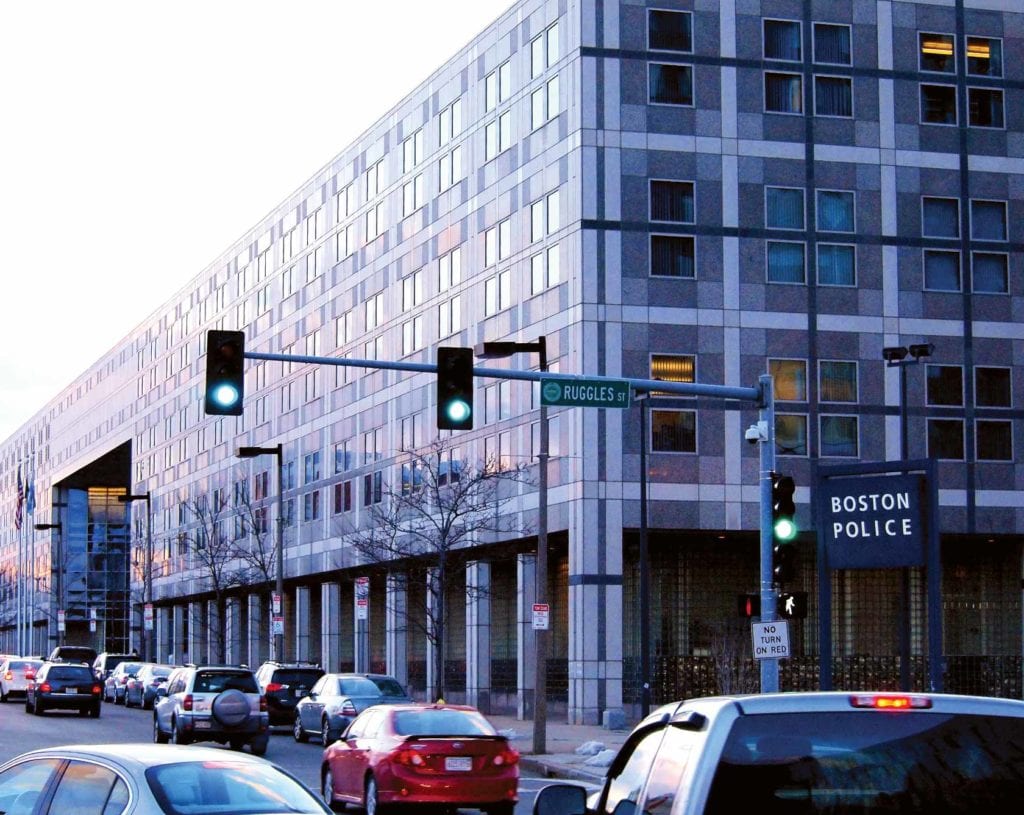ACLU sues BPD over gang database
Lawyers seek access to city records on suspected gang members

Lawyers from the American Civil Liberties Union of Massachusetts announced Nov. 15 that they are suing Boston police and the mayor’s office for the public release of the city’s gang database.
Carol Rose, executive director of ACLU Massachusetts and Kade Crockford, director of the organization’s Technology for Liberty program, told journalists gathered via conference call last Thursday afternoon that they, along with several other civil rights groups, including the Children’s Law Center of Massachusetts and Greater Boston Legal Services, have filed a public records lawsuit against the Boston Police Department (BPD), police Commissioner William Gross, the Boston Regional Intelligence Center (BRIC) and the City of Boston, in the hope that law enforcement’s Gang Assessment Database, a list of suspected gang members about which very little is known, will finally be released.
“In Boston, we call our city a sanctuary for immigrants, but behind the scenes, under cover of secrecy, local law enforcement profiling systems allow young people to be targeted and deported — even when they haven’t been suspected of engaging in criminal activity,” said Rose.
The ACLU and their fellow plaintiffs in this case, supported by the services of the law firm Anderson & Kreiger LLP, are requesting that the database be made publicly available so that its contents and the procedures surrounding its compilation become more transparent.
Specifically, advocates are hoping to discover what proportion of those suspected of gang involvement are black and Latinx, whether a person can be removed from the database once allegations against them have been proven false, if the database helps prevent or reduce gang crime, and crucially for non-citizens, how U.S. Immigration and Customs Enforcement (ICE) officials get hold of this information, often used to detain or deport immigrants labeled as gang affiliated.
How BPD officers decide who is gang associated and whose details are entered into the database is not widely publicized. Using a point-based system, a person can become a suspect by hanging out with other known gang members, interacting with them on social media, or by wearing colors associated with certain gangs. Boston Public Schools employees are also complicit in reporting students they believe could be involved in criminal gang activity.
The ACLU’s complaint states that Chicago Bulls basketball caps and Nike Air Jordan sneakers are considered gang apparel, while BPD and BRIC officers turn to social media sites like Facebook as a source of intelligence.
According the ACLU’s complaint, “Because the criteria for gang membership are vague enough to be used in nearly any situation, they are readily applied to things that are popular among certain black or Latinx youth.” Many of the accused do not have a prior arrest record or any previous convictions, said ACLU representatives on last week’s call.
“We think it is necessary to shine a light on the behind-the-scenes information-sharing that takes place every day in Boston and unfortunately across the Commonwealth of Massachusetts,” said Crockford.
With long-standing concerns about racial disparities within the BPD, Crockford said the situation has become more pressing since President Trump took office. Gang databases existed across the country during the Obama administration, but Crockford said that since 2016 they have been increasingly used in immigration courts as evidence leading to deportation.
Calling it “ironic,” Crockford said many immigrants deported on the basis of information contained in the gang database are in the U.S. because they have fled gang violence and persecution in their own countries.
One of three such examples shared in the ACLU’s lawsuit filing involves an 18-year-old, referred to in the complaint documents only as “Martin,” who escaped gang violence in Salvador and found refuge with his mother, sister and aunt in East Boston. After suffering an assault at school and being reported for hanging around with alleged gang members, Martin’s details were entered into the gang database. He was detained by ICE and currently remains in custody. His attorney’s requests for his file, which would explain why Martin is considered gang-affiliated, have been repeatedly denied by BPD officers.
“Being labeled a gang member can have catastrophic consequences for a young person,” said Rose, “such as being a target for surveillance and police stops, facing harsher outcomes in the criminal legal system and, for non-citizen youth, it can mean detention and deportation.”
This is not the first attempt by ACLU members to access the database, which has been closely guarded by the BPD. The ACLU has been engaged in a back-and-forth battle with the police department, BRIC and the city’s records access officer over the public disclosure of this information since May, when ACLU representatives filed a public records request which, they say, was ignored by Mayor Martin Walsh’s office and Gross’ police department.
But Crockford is confident that what they will find once the records are released will mirror what ProPublica journalists found when Chicago’s gang database was turned over earlier this year; that 95 percent of the 128,000 people on the list were either black or Latinx. “We very highly suspect we’re going to find similar numbers when the BPD disclose,” Crockford said during the phone call.
The BPD did not respond to the Banner’s request for comment.
“We hope that this public records lawsuit is just the first step toward aligning the secretive surveillance practices of the Boston Police Department with the city’s stated commitment to fighting racism, to protecting immigrants and keeping our city both safe and free,” said Rose.






